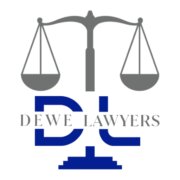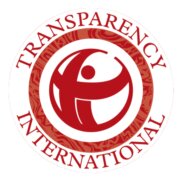Best Accounting & Auditing Lawyers in Papua New Guinea
Share your needs with us, get contacted by law firms.
Free. Takes 2 min.
Or refine your search by selecting a city:
List of the best lawyers in Papua New Guinea
About Accounting & Auditing Law in Papua New Guinea
Accounting and auditing in Papua New Guinea are vital components of the financial and business landscape, playing an essential role in maintaining transparency and accountability within the economic system. The legal framework governing these practices is designed to ensure accuracy in financial reporting, foster investor confidence, and uphold ethical standards among professionals in the field. The country's accounting and auditing regulations are influenced by international standards, with adaptations suited to the local economic environment, addressing issues such as taxation, corporate governance, and business compliance.
Why You May Need a Lawyer
There are several instances where individuals or businesses might seek legal advice in accounting and auditing in Papua New Guinea:
- Regulatory Compliance: Ensuring compliance with local financial regulations and international accounting standards can be complex, and legal guidance is often necessary.
- Taxation Issues: Legal advice might be needed to navigate tax obligations, handle audits from tax authorities, or address disputes with the Internal Revenue Commission.
- Corporate Governance: Corporations may need legal support to maintain transparent governance practices and adhere to statutory requirements.
- Financial Litigation: In cases of financial disputes or allegations of fraud, legal representation is crucial.
- Contract Agreements: Ensuring that financial aspects of contracts are equitable and legally sound may require legal help.
Local Laws Overview
The accounting and auditing profession in Papua New Guinea is governed by several key legislative instruments:
- Companies Act 1997: This act governs the corporate entities' operations, including accounting and auditing standards.
- Income Tax Act 1959: Provides guidelines for taxation, requiring accurate accounting records and compliance with tax returns.
- Accountants Act 1996: Regulates the practice of accounting and auditing professionals in the country.
- Public Finance (Management) Act 1995: Outlines the financial management practices for public sector entities, focusing on accountability and audit processes.
Frequently Asked Questions
What is the role of the Certified Practicing Accountants Papua New Guinea (CPA PNG)?
CPA PNG is the professional body responsible for setting accounting and auditing standards, providing certifications, and ensuring ethical practices among professionals in Papua New Guinea.
Do small businesses in Papua New Guinea need to conduct audits?
The requirement for audits depends on the business's legal structure and size. Small businesses might not be mandated to undergo an audit, but compliance with reporting standards is expected.
How are international accounting standards applied in Papua New Guinea?
Papua New Guinea adopts International Financial Reporting Standards (IFRS) for financial reporting, aligning local practices with global standards.
What consequences arise from failing to comply with accounting laws?
Non-compliance can result in penalties, legal sanctions, fines, and in some cases, criminal charges, alongside reputational damage for the business or individual involved.
Can a lawyer assist in financial audits?
While lawyers do not conduct audits, they can provide legal advice on compliance issues, represent clients in audit disputes, and advise on the legal aspects of audit findings.
Is financial fraud a common legal issue in Papua New Guinea?
Financial fraud can occur in any country, and Papua New Guinea addresses these issues through stringent legal frameworks and penalties to deter fraudulent activities.
What is the process for resolving tax disputes?
Legal representation is crucial in tax disputes, which may involve negotiations with the Internal Revenue Commission, appeals, and, if necessary, litigation.
How does the Companies Act affect accounting practices?
The Companies Act prescribes the statutory requirements for financial reporting, auditing, and disclosures necessary for corporate entities, impacting how their accounting frameworks are structured.
Are there specific audits for public sector entities?
Yes, the Public Finance (Management) Act requires enhanced transparency and accountability in the public sector, mandating audits that align with specific public financial management practices.
What qualifications must accountants have in Papua New Guinea?
Accountants must be certified by CPA PNG, and comply with the qualifications and ethical standards set by the Accountants Act 1996 to practice in Papua New Guinea.
Additional Resources
For those seeking more information or assistance, the following resources can be helpful:
- Certified Practicing Accountants Papua New Guinea (CPA PNG): The leading professional body for accountants, providing resources and certifications.
- Internal Revenue Commission: Offers guidance and assistance on tax-related matters.
- Investment Promotion Authority: Provides information about corporate laws and business compliance requirements.
- Department of Finance: Responsible for public financial management and auditing standards for government entities.
Next Steps
If you require legal assistance in accounting and auditing, consider taking the following steps:
- Identify Your Needs: Clearly determine the legal issue or advice you require concerning accounting and auditing.
- Consult with Professionals: Seek initial advice from certified accountants or auditors who may provide preliminary guidance or identify specific areas needing legal intervention.
- Contact a Lawyer: Engage with a lawyer specializing in accounting, auditing, or corporate law. Ensure they are familiar with Papua New Guinea's legal landscape.
- Prepare Documentation: Gather relevant financial records, contracts, and any prior communications related to your legal inquiry to assist the lawyer in evaluation.
- Schedule a Consultation: Arrange meetings with potential lawyers to discuss your case, understand their approach, and choose one who best fits your needs.
Lawzana helps you find the best lawyers and law firms in Papua New Guinea through a curated and pre-screened list of qualified legal professionals. Our platform offers rankings and detailed profiles of attorneys and law firms, allowing you to compare based on practice areas, including Accounting & Auditing, experience, and client feedback.
Each profile includes a description of the firm's areas of practice, client reviews, team members and partners, year of establishment, spoken languages, office locations, contact information, social media presence, and any published articles or resources. Most firms on our platform speak English and are experienced in both local and international legal matters.
Get a quote from top-rated law firms in Papua New Guinea — quickly, securely, and without unnecessary hassle.
Disclaimer:
The information provided on this page is for general informational purposes only and does not constitute legal advice. While we strive to ensure the accuracy and relevance of the content, legal information may change over time, and interpretations of the law can vary. You should always consult with a qualified legal professional for advice specific to your situation.
We disclaim all liability for actions taken or not taken based on the content of this page. If you believe any information is incorrect or outdated, please contact us, and we will review and update it where appropriate.
Browse accounting & auditing law firms by city in Papua New Guinea
Refine your search by selecting a city.















